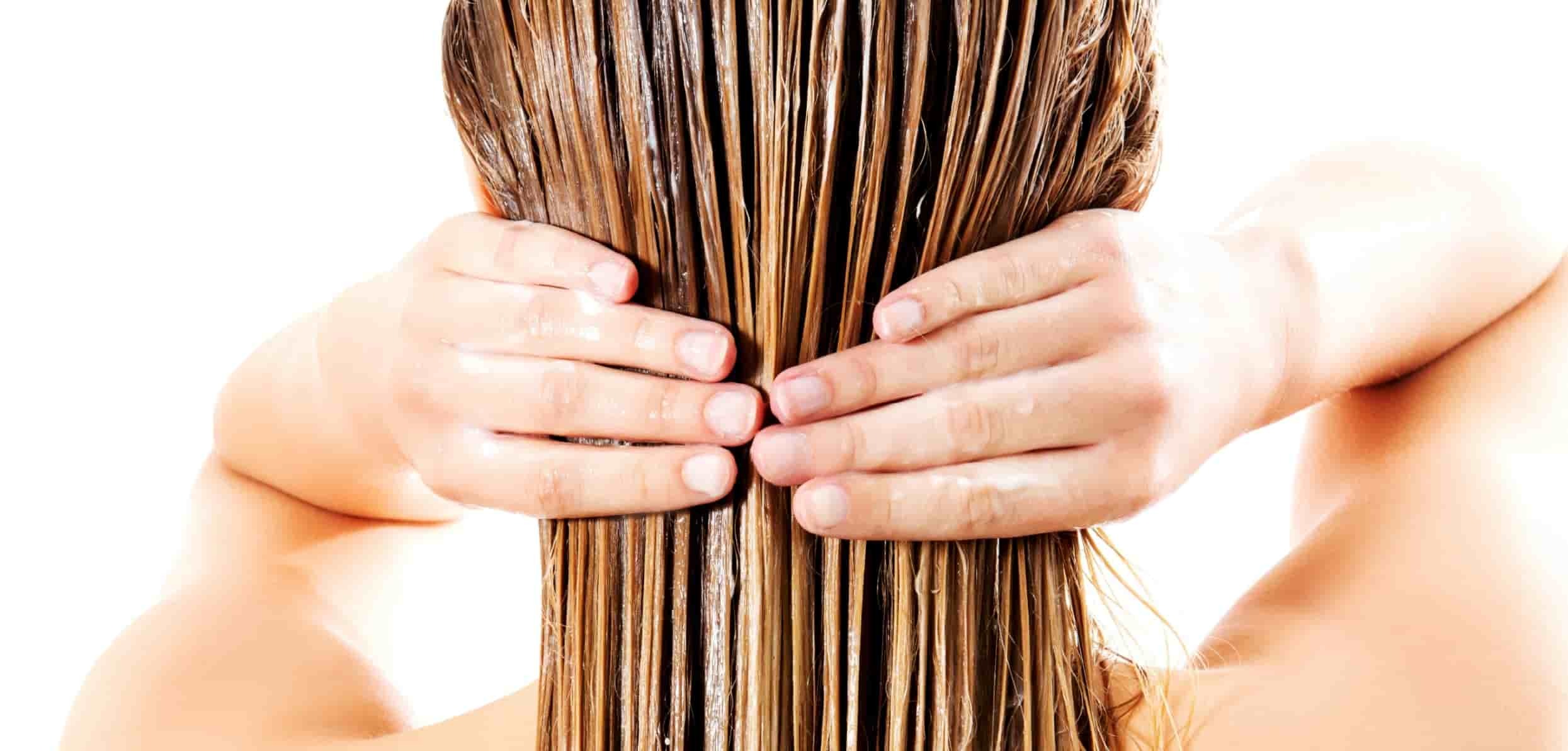
As you age, you will likely be noticing some interesting physical and mental changes that maybe you haven’t heard about before. One that doesn’t get a lot of attention is hair loss in women, especially hair loss due to thyroid hormone imbalances.
While it’s natural for some women to experience hair loss at certain times in their menstrual cycles, or times of the year, hair loss can also be caused by health conditions. Hair loss and thyroid hormone imbalance are not uncommon.
Once the thyroid hair loss symptoms start, there are things we can do to prevent them from continuing.
Perimenopause and Menopause?
If you’re between the ages of 35-65 you are likely suffering symptoms related to aging and decreasing hormones associated with perimenopause and menopause.
Perimenopause starts as estrogen, progesterone, and testosterone levels drop with age; typically in your late 30’s and throughout your 40s and 50s. When these hormones start to drop you can start to notice symptoms that most of us try to ignore, but that’s not a great solution for dealing with the symptoms.
Personalized anti-aging treatments. For you.

Hair Loss, A Lesser-Known Symptoms of Perimenopause and Menopause
Menopause is spread out over a very long time, some 20 years or more! It can sometimes be so gradual that you don’t notice how bad it’s become. Menopause comes with many minor symptoms that can result in major changes. Some women have only a little discomfort, while others may be slammed with multiple symptoms.
Most menopausal changes are caused by the decline of three hormones; estrogen, progesterone, and testosterone which can directly influence many other hormones including thyroid hormones.
When hormones are not balanced, some hormones can start to take control. We know that men go bald when there’s too much testosterone. Women suffer the same problem if estrogen and progesterone drop and thyroid hormones are not balanced.
You may notice bald patches, thinning, and undesirable ‘peach fuzz’ may develop on your face. The fluctuating hormones can also create dry, thin, brittle fingernails.
Thyroid Hormones and Hair Growth
Thyroid hormones play a role in menopause and how healthy your hair and nails are. When your hair grows, it starts at the scalp and grows out of the hair follicle. You need proper circulation in the scalp to nourish the hair follicles which helps your hair to grow.
Hair growth is a cycle… hair falls out and regrows, and around, and around it goes. There will always be a few follicle cells that are ‘resting’ from this growth cycle.2
Hair loss is a very common symptom of a thyroid imbalance. We know that when thyroid hormones are disrupted (too high or too low) hair loss, breakage and thinning can follow.1 We all lose some hair daily, and then it regrows. But when thyroid hormones are off, that natural regrowth is disturbed and you aren’t replacing that broken hair.
If you are seeing a lot of hair coming out in the shower or as you brush it — more than 100 strands per day – you are experiencing significant hair loss.
If thyroid levels are really off, people can experience alopecia which causes patchy or complete hair loss. The word ‘alopecia’ is just the medical term for ‘bald.’
Hair loss, especially when it feels like it is increasing, can lead people to worry that all of their hair will fall out (alopecia totalis), but hair loss caused by thyroid disorders is usually temporary and can be reversed.
Estrogen is a hormone that directly affects your thyroid hormone levels and the thyroid gland and its ability to produce enough of two hormones: triiodothyronine (T3), and thyroxine (T4).
When estrogen levels drop, there can be a drop in circulating thyroid hormones and then your body tries to stimulate more T4 production by releasing what’s called Thyroid Stimulating Hormone (TSH). TSH’s job is to nudge the thyroid gland to make more T4.
As you can see, it’s quite a cycle that is dependent on a balance of hormones – especially estrogen. Getting estrogen balanced can help normalize the other hormones that depend on it and potentially prevent ‘hypothyroidism’ or ‘hyperthyroidism.’
The relationship between estrogen levels and thyroid function may be the missing link in our understanding of the connection between hypothyroidism and menopause. Estrogen can affect thyroid function in other ways too:
Estrogen stimulates the growth of the thyroid gland which is a small butterfly-shaped gland on the front of your neck. Excess estrogen can lead to an enlarged thyroid (goiter) right there on your neck,
Estrogen regulates the protein that binds to the thyroid hormone (TBG) in the bloodstream which acts as a taxi for the thyroid hormone to get to all of the needed locations in your body. Too little estrogen and there are not enough ‘taxis’ to get the hormones where they need to go.
Estrogen is also responsible for stimulating thyroglobulin, a hormone that breaks down and becomes thyroid hormone. Too much estrogen can stimulate the production of high levels of thyroglobulin which can also result in a goiter.
How the Thyroid Works With Estrogen During the Menopausal Transition
During peri- and menopause women produce unpredictable levels of the hormones progesterone, estrogen, and testosterone – which will all impact the levels of thyroid hormones.
Hypothyroidism (too little thyroid hormone) goes hand-in-hand with aging and menopause which leads scientists to acknowledge the connection between the drop in estrogen and thyroid function.4
The symptoms of hypothyroidism and menopause are usually similar, and also interrelated. For instance, hair loss, moodiness, forgetfulness, depression, irregular menstrual cycles, and weight changes are associated with both hypothyroidism and menopause.
When there is too much thyroid hormone (hyperthyroidism), you can also see symptoms similar to menopause-like sleep disturbances, heart palpitations, heat intolerance, and hot flashes.4
Whether you have too much thyroid hormone, or too little, these types of thyroid issues can elevate your risk of health complications linked to menopause, such as urinary tract infection, weight gain, insomnia, and heart disease.4
How to Stop Hormonal Hair Loss and Thyroid
Hormone Replacement Therapy (HRT) can help to get your estrogen levels back which will normalize your thyroid hormones too. Level out the thyroid hormones and you can see a quick improvement in your hair loss.
Stress management will help you from losing hair rapidly. High levels of stress increase the hormone cortisol (the stress hormone) and can lead to hair loss.
Meditation, journaling, yoga, and exercising outdoors can reduce cortisol levels.
Nutrition can play a key role in hair health. Make sure you are getting enough protein, as protein is a building block for hair.
Make sure you have sufficient iron intake because Iron is associated with hair growth.
Try a multivitamin with biotin. A, C, E, and B vitamins, zinc, copper, and CoQ10 can also contribute to hair health.
Scalp massages to stimulate circulation can improve the hair growth cycle.
What are other causes of hair loss 1?
Age, especially after 40
Hair damage from over-styling or products
Fungal issues
Trauma ( surgery or injury)
Chronic stress
Weight loss
Inherited male-pattern or female-pattern hair loss
Autoimmune disorders
Chemotherapy drugs
Personalized anti-aging treatments. For you.

Signs and Symptoms That Your Hair Loss is Connected to a Thyroid Disorder
Thinning eyebrows. We don’t know exactly why the eyebrow is targeted in thyroid disorders, but this is a good indicator that your thyroid hormones may be low.
Hair that is brittle, dry, and breaks easily. Dry, brittle hair is also connected to low thyroid function. Low thyroid hormone can lead to the early release of the hair shaft and root, as well as premature gray or white hair.
Feeling exhausted all the time, even after 8 hours of sleep. The thyroid regulates our metabolism, so it affects the way we use and store energy. If we have low thyroid hormone levels, our metabolism can slow down and can lead to fatigue and weight gain.
Puffiness in the face or extremities. Low thyroid can cause excess water retention.
Yellowing of the palms of your hands. Yellowing of the skin on your hands can happen with a thyroid imbalance due to a build-up of carotene in your blood. Hypothyroidism can slow the conversion of carotene to vitamin A.2 If you think your hair loss might be connected to a thyroid imbalance, begin supporting your thyroid — and your hair — naturally. Our exclusive hormone replacement therapy (HRT) can start to reverse the thyroid hormone concentration errors and can positively affect your thyroid function.
How Can Winona Help?
All of these symptoms can adversely impact a woman’s life. However, effective menopause treatments, like hormone replacement therapy (HRT), are available to help you prevent your hair loss and thyroid changes.
Winona encourages women to try various treatment options whether HRT, diet, or lifestyle changes to identify what works best for them to prevent this thyroid hair loss. If you are not noticing improvement with your HRT, we encourage you to discuss the hair loss, and possibly thyroid problems, with your primary care provider.
While we know perimenopause and menopause are inevitable, you don’t have to endure the sometimes embarrassing symptoms, like hair loss.
With menopause support from Winona, you have the opportunity to take preventive action against health risks associated with the ever-decreasing hormones as we age. It can be done by using natural menopause relief in the form of HRT and other natural remedies.
Hormone replacement is a safe and physiologically natural way for you to regain your vitality, and HRT can restore proper hormone levels using substances that are bioidentical to those produced by your own body.
Winona’s healthcare platform is a place to safely connect with a healthcare provider to receive care, to ask the sometimes difficult and maybe even embarrassing questions.
“This article is for informational purposes only and does not constitute medical advice. The information contained herein is not a substitute for professional medical advice. Always talk to your doctor about the risks and benefits of any treatment.” References:



